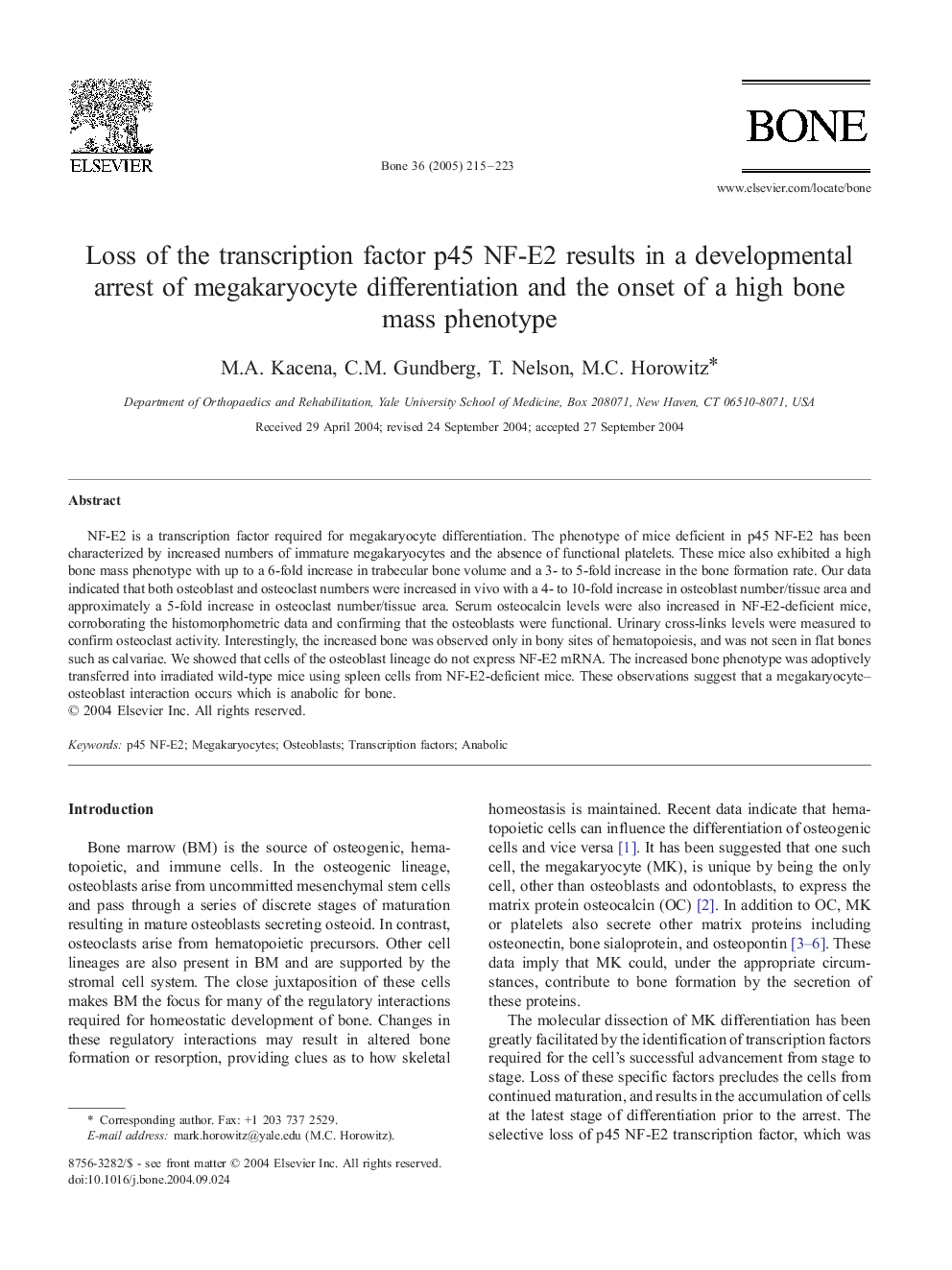| Article ID | Journal | Published Year | Pages | File Type |
|---|---|---|---|---|
| 9105133 | Bone | 2005 | 9 Pages |
Abstract
NF-E2 is a transcription factor required for megakaryocyte differentiation. The phenotype of mice deficient in p45 NF-E2 has been characterized by increased numbers of immature megakaryocytes and the absence of functional platelets. These mice also exhibited a high bone mass phenotype with up to a 6-fold increase in trabecular bone volume and a 3- to 5-fold increase in the bone formation rate. Our data indicated that both osteoblast and osteoclast numbers were increased in vivo with a 4- to 10-fold increase in osteoblast number/tissue area and approximately a 5-fold increase in osteoclast number/tissue area. Serum osteocalcin levels were also increased in NF-E2-deficient mice, corroborating the histomorphometric data and confirming that the osteoblasts were functional. Urinary cross-links levels were measured to confirm osteoclast activity. Interestingly, the increased bone was observed only in bony sites of hematopoiesis, and was not seen in flat bones such as calvariae. We showed that cells of the osteoblast lineage do not express NF-E2 mRNA. The increased bone phenotype was adoptively transferred into irradiated wild-type mice using spleen cells from NF-E2-deficient mice. These observations suggest that a megakaryocyte-osteoblast interaction occurs which is anabolic for bone.
Related Topics
Life Sciences
Biochemistry, Genetics and Molecular Biology
Developmental Biology
Authors
M.A. Kacena, C.M. Gundberg, T. Nelson, M.C. Horowitz,
